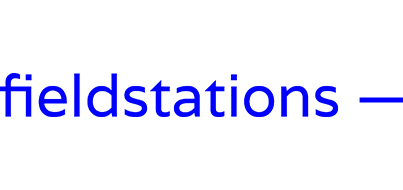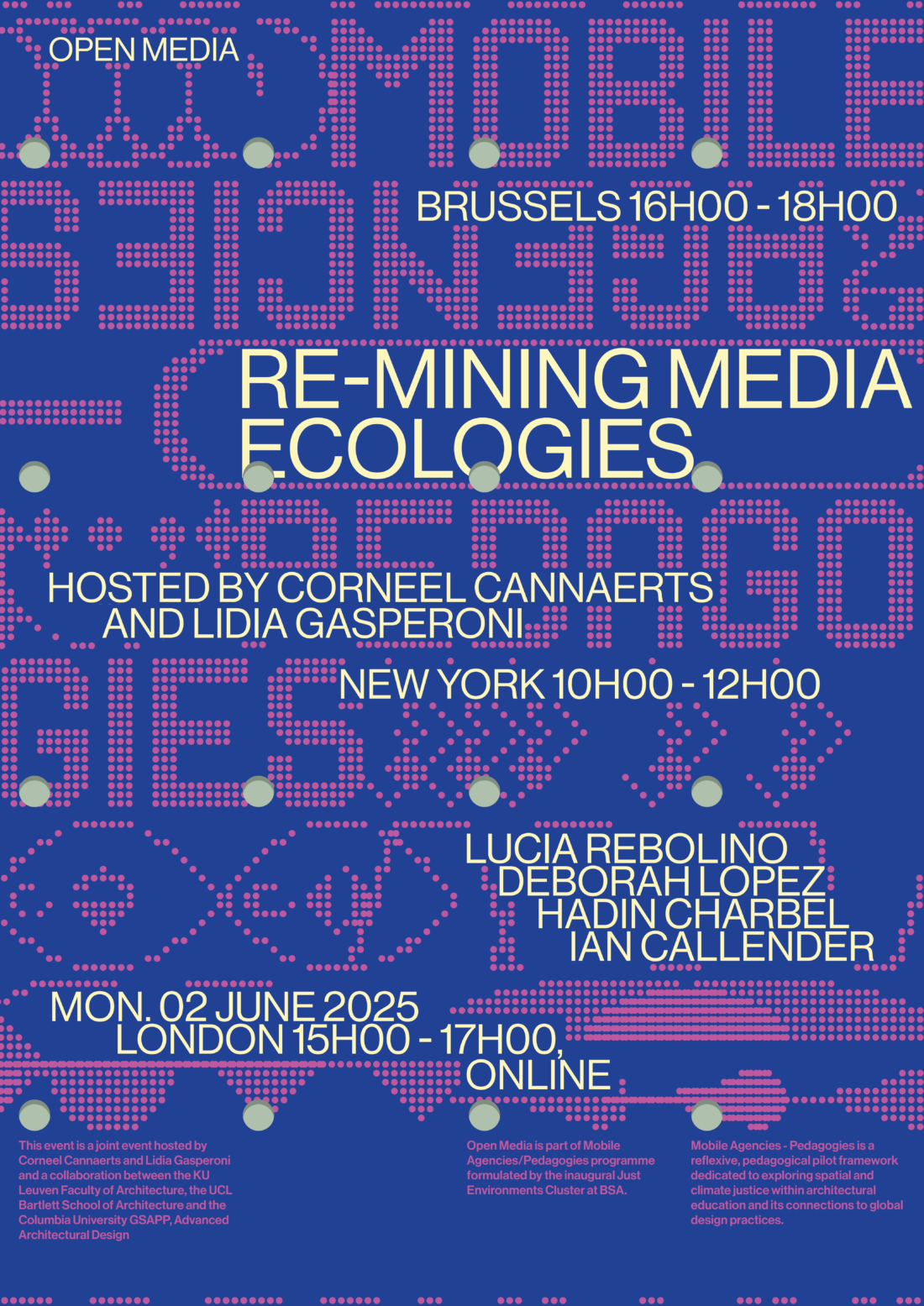Re-Mining Media Ecologies Symposium
Hosted by Fieldstations members Corneel Cannaerts (KU Leuven and Columbia University GSAPP Advanced Architectural Design) and Lidia Gasperoni (Bartlett School of Architecture, UCL) 2 JUNE, 3pm (UTC, London)
Presentations by Lucia Rebolino, Deborah Lopez & Hadin Charbel and Ian Callender
KU Leuven Faculty of Architecture | UCL Bartlett School of Architecture | Columbia University GSAPP Advanced Architectural Design
Our environments are increasingly mediated, experienced and constructed through digital media. From satellite imagery and environmental sensing to social media feeds and data visualisation, contemporary media do not merely represent our world, but rather actively contribute to its construction and transformation. Whilst digital technologies are commonly perceived as light and immaterial, using metaphors link cloud and uploading, the infrastructures that enable them—data centres, undersea cables, satellites and servers – require vast amounts of energy and resources. These infrastructures are entangled with extractive industries, including mining, energy consumption, and logistical control. Extractivist logics affect not only the hardware of our digital media ecologies, but also its content and software. Data mining is a crucial techique fuelling digital capitalism—transforming social behaviour, cultural expression, and environmental conditions into quantifiable and commodifiable information. It is deployed for surveillance, profit, and control.
In the context of the prevailing ecological and political crises, there is an increasing demand for the reappropriation of data mining as a critical and creative method. The agency of data mining techniques—such as scraping, aggregating, processing, and visualizing data—enables architects, designers, and artists to unveil the latent layers of technological infrastructure, to critically trace the entanglements between media and environments, and to construct speculative counter-narratives.
This symposium invites academics and practitioners working across architecture and urban design, media theory, visual culture, and environmental design to reflect on the reciprocal entanglements between media and environments. It explores the potential for reappropriating and experimenting with extractivist technologies, such as data mining from tools of capture into media for critique, imagination, and resistance.
Open Media is part of Mobile Agencies-Pedagogies programme formulated by the inaugural Just Environments Cluster at BSA (Member Lidia Gasperoni)




